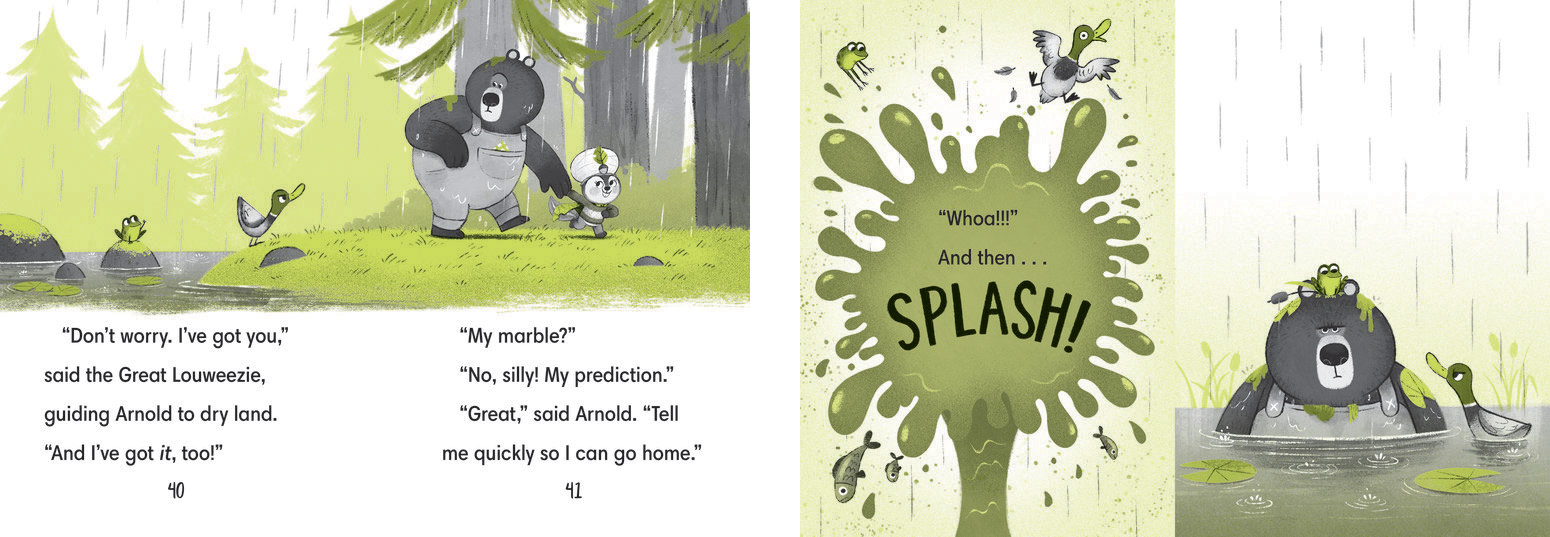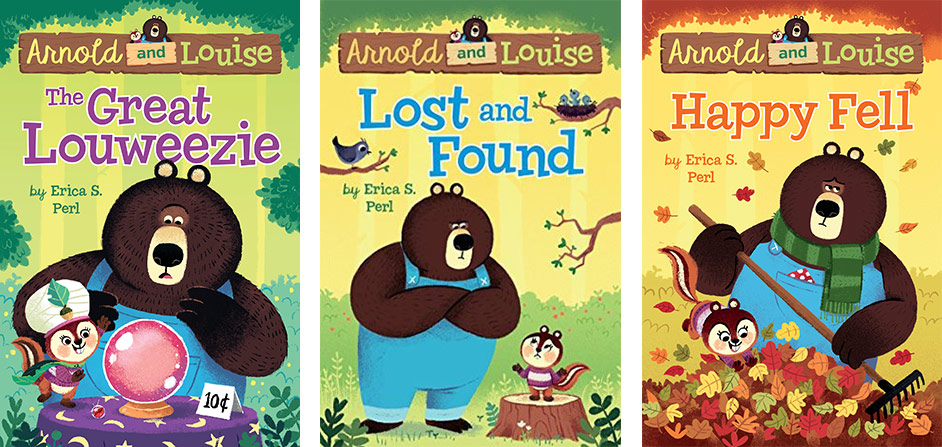Erica Perl

Ready for a transition? Shorter days are here, signifying the end of summer and ushering the transition to back-to-school. But there’s another transition on my mind — finding strong book choices for readers who fall between easy-to-read books and traditional chapter books and need practice building fluency and stamina.
Happily, award-winning author Erica S. Perl has the short answer.
September 3, 2019
I’d like to introduce you to some friends of mine: Arnold and Louise. They live next door to each other in a forest, as well as in the pages of a book series I wrote (unsurprisingly, it’s called Arnold and Louise). This book series is a great place for transitional readers to visit because one thing you’ll find there — along with my dear friends — is short chapters.
I am a big fan of short chapters. Here are five reasons you should be, too:
1: Short chapters are zippy!
In each short chapter, there needs to be action. Something happens (like Arnold lending Louise a treasure he REALLY doesn’t want her to lose, even though she has a history of losing his prized possessions). When the chapter ends, you need to start the next chapter to find out what happens next. This makes them work well both as read-alouds and as books for transitional readers.
2: Short chapters are engaging!
Chris Chatterton is the illustrator of the Arnold and Louise series, and he brings such wonderful emotional range to these characters. In the first book in the series, The Great Louweezie, we see Arnold as a paragon of patience on one page, then watch as Louise’s persistence wears him down. We laugh out loud when Arnold falls — splash! — into a pond, ending up with a frog on his head — and we smile when Louise gratefully realizes that Arnold has forgiven her. These illustrations also provide context clues to transitional readers as they strengthen their decoding abilities.

3. Short chapters help readers pace themselves!
If you love a book, it can be really tempting to race through it. Short chapters — there are five short chapters in each Arnold and Louise book — break things up into manageable chunks and allow readers to digest or discuss what is going on in the story (one suggestion: ask your reader to pause and predict what might happen next before reading on to find out).
4. Short chapters provide regular rewards!
For every reader that wants to race to the finish line, there’s another reader that find each page, sentence, and even word to be a struggle. Short chapters are satisfying because if these readers hang in there and make it through a few pages — with or without a parent, teacher, or friend’s support — hey, there’s the end of the chapter! “Wow! You read a whole chapter!” This accomplishment can be celebrated with a high-five, a victory dance, or even… reading another chapter!
5. Short chapters are satisfying!
I love picture books and firmly believe that you never “outgrow” them. Kids can and should continue reading picture books — and all kinds of books, for that matter — all through school. But many kids crave the satisfaction of tackling chapters, and who could blame them for wanting to scale this particular peak? The trouble is, many chapter books are simply too wordy, emotionally complex, or just plain LONG for early elementary students. Short chapter books allow kids to feel the satisfaction of reading a story that feels “just right” yet also established them as chapter book readers.

The first three books in the Arnold and Louise series are The Great Louweezie, Lost and Found, and Happy Fell. All the Fun Winter Things will come out soon. Here are some more short chapter book suggestions:
- The Charlie and Mouse series, written by Laurel Snyder and illustrated by Emily Hughes
- The Dragon series, by Dav Pilkey
- The Katie Woo series, by Fran Manushkin and illustrated by Tammie Lyon
- The Sofia Martinez series, written by Jaqueline Jules and illustrated by Kim Smith
- The Yasmin! Series, written by Saadia Faruqi and illustrated by Hatem Aly
- The Frog and Toad books (as well as Owl at Home), by Arnold Lobel
Happy short chaptering!



